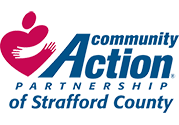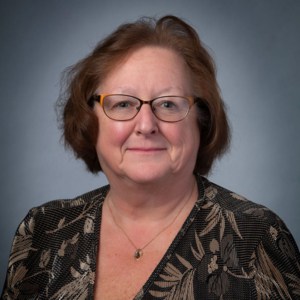Describe the makeup of the CAPSC board.
Terry: I think it’s pretty balanced. Across the nation, Community Actions Agencies are mandated to have a tripartite board, with three categories that make up the representatives. One third is elected officials, one third represents the population we serve, and one third are general people. Even though most of the folks come from Rochester and to the south, they want to know what is needed in the northern part of the county as well. They are very open-minded. We’ve got the county sheriff, we’ve got a state trooper, we’ve got a lawyer from the public defender’s office, and a lawyer from the county attorney’s office. We’ve got folks who have received the services that CAPSC provides. So we really have a cross-section. And some people love to do fundraising, and others who get into the nitty gritty of finances, like me. Betsey has done a great job putting together the people with the skill sets that a board needs.
Can you describe some of CAPSC’s most significant achievements since you’ve been a board member?
Terry: Completing Bradley Commons was a huge accomplishment that brought multiple service sites in Dover into one building. Southern Strafford County really has one stop shopping for services.
Other accomplishments are acquiring Gafney Home, and the 2021-2022 winter homeless program. Also, the massive increase in grant funding to meet the needs of multiple groups during COVID.
We are now in a post-pandemic world, but still recovering from the crisis. What’s changed because of COVID?
Terry: Aside from the extra $10+ million we got for different programs, directly-related to COVID debt funding is all going away. Some of that funding goes away April 1, other funding goes away on June 1.
People are more aware of how diseases get transmitted and that there is such a thing called public health. With COVID, public health really stepped into the light, and did the bulk of the work with vaccinations. As we move further away from the pandemic, people forget, and some of our good habits go by the wayside.
I think COVID made a lot of our families even more acutely aware of how thin the line is between surviving and having to pick and choose: Do I buy food or do I pay my rent? For a lot of people, that line is so very very thin.
What are some of the biggest challenges facing the agency right now?
Terry: I know there are a lot of people, especially town funders, that when they hear CAPSC, they only think of Head Start. They don’t understand that there are all these other programs going on, from fuel assistance to overseeing distribution of food commodities to weatherization. So it’s important for our message to get out there that CAPSC does so much more.
The housing stock in our area is so low, it’s at 2%. People are moving here from Massachusetts and other areas to live here year-round, which makes it very difficult for local families who make local-based salaries to get in.
Maintaining funding levels. It’s a matter of getting the funding, and what’s going on in Washington. Compromises might have to be made; will the federal budgets going forward continue to fund CAPSC? If that federal funding is cut, that means services get cut.
Staffing!!!!!! Trying to stay competitive in a very tight workforce.
Providing increased services to residents of Northern Strafford County.
What is CAPSC’s vision for the future, and how is the board working to ensure that the agency remains relevant and effective in a changing community?
Terry: I think the CAPSC board is always looking to the future. An example of that is that right now we have an ad hoc space needs committee, which I’m on, trying to identify how and where we can better deliver service to Northern Strafford County. I live in the most northern town in Northern Strafford County with a population of 2,700, and we do not have public transportation, even the Coast Bus. So when folks up there need services, they don’t have transportation to Dover. So we’re looking at getting services up there. Things are very spread out. Even something like childcare options, we only have 2 up there.
Another thing we are always looking at is: how can we stay competitive in the job market? It’s an issue for all non-profits. It’s extremely important to retain good, qualified, interested employees and pay them to keep them.
We’re looking towards future space needs, and other projects that CAPSC can take on to provide more housing. I think we are going to see more housing solutions for seniors, like complexes such as the Gafney Home. We will see more independent living in one building, and not just for seniors but individuals at risk. These will be located in Southern Strafford County, because also when you have a large building where you have people at risk, they need to be close to the various services. They can’t be 20 minutes away from hospitals.
How does the board measure success, and what metrics are used to track progress towards its goals?
Terry: For me it’s data. Getting the Gafney home! We got that and are able to preserve its mission to provide for seniors. For Thanksgiving and Christmas, we were able to get 500 food baskets. It’s a small bit of data but it also represents all the additional family members who benefitted. How many people did we give electric assistance to? Are we increasing space? We are working hard to speed up those processes to help more people.
We do interviews with clients, staff and stakeholders to see what we need. We will need to do a lot of discussing and negotiating.
The board is not there to look at day-to-day activities. We look at things from the 50,000 ft level, take a broad analysis of items, and choose good leadership. The success at CAPSC is because of the senior management team, and it filters all the way down.


